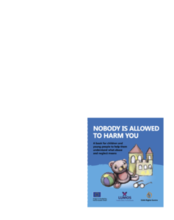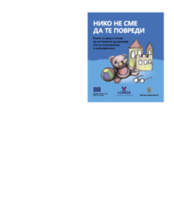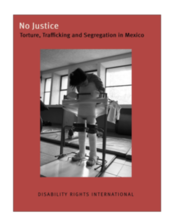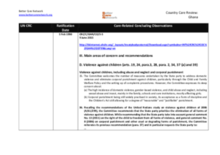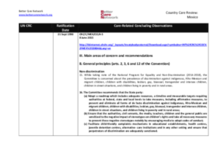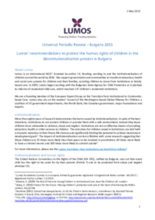Displaying 331 - 340 of 494
This video is presented by Better Care Network and UNICEF. It tells the story of Maureen, a young girl in Kenya who was separated from her family and sent to live in a children's home. It also features interviews with experts, including those who have lived in children's homes, explaining some of the negative impacts of institutionalization and highlights the efforts of Care Reform Initiatives to deinstitutionalize children in Kenya and Ghana.
This animated video from Lumos, narrated by Lumos founder J.K. Rowling, illustrates the “tragic consequences of orphanage care,” and argues that more can and should be done to support families to care for their children, eliminating the use of institutional care.
Visionaries, a documentary series on public television in the United States, aired two episodes featuring the work of Disability Rights International (DRI) in uncovering the egregious abuses suffered by children and adults with disabilities living in institutions around the world.
This book is designed to help children and young people understand what abuse and neglect are, and who to ask for help if it happens to them or to someone they know. The book is written in the Serbian context and is available in English and Serbian.
This book is designed to help children and young people understand what abuse and neglect are, and who to ask for help if it happens to them or to someone they know. The book is written in the Serbian context and is available in English and Serbian.
This report from Disability Rights International (DRI) outlines the findings from a two-year investigation into the treatment of children and adults with mental disabilities in Mexico City, particularly those in the care of state-funded and private residential facilities.
This study replicated and extended previous research which identified the small proportion of highly productive foster parents who provide a disproportionate amount of care in the United States. This study used a nationally representative sample of foster families (N = 876) with a focus on willingness to foster, and actually fostering, children with special needs.
This country care review includes the care related Concluding Observations adopted by the Committee on the Rights of the Child.
This country care review includes the care related Concluding Observations adopted by the Committee on the Rights of Persons with Disabilities and the Committee on the Rights of the Child.
In this paper, Lumos reviews Bulgaria’s national strategy on deinstitutionalisation, adopted in 2010, and provides recommendations for ensuring the rights of children in the process.

